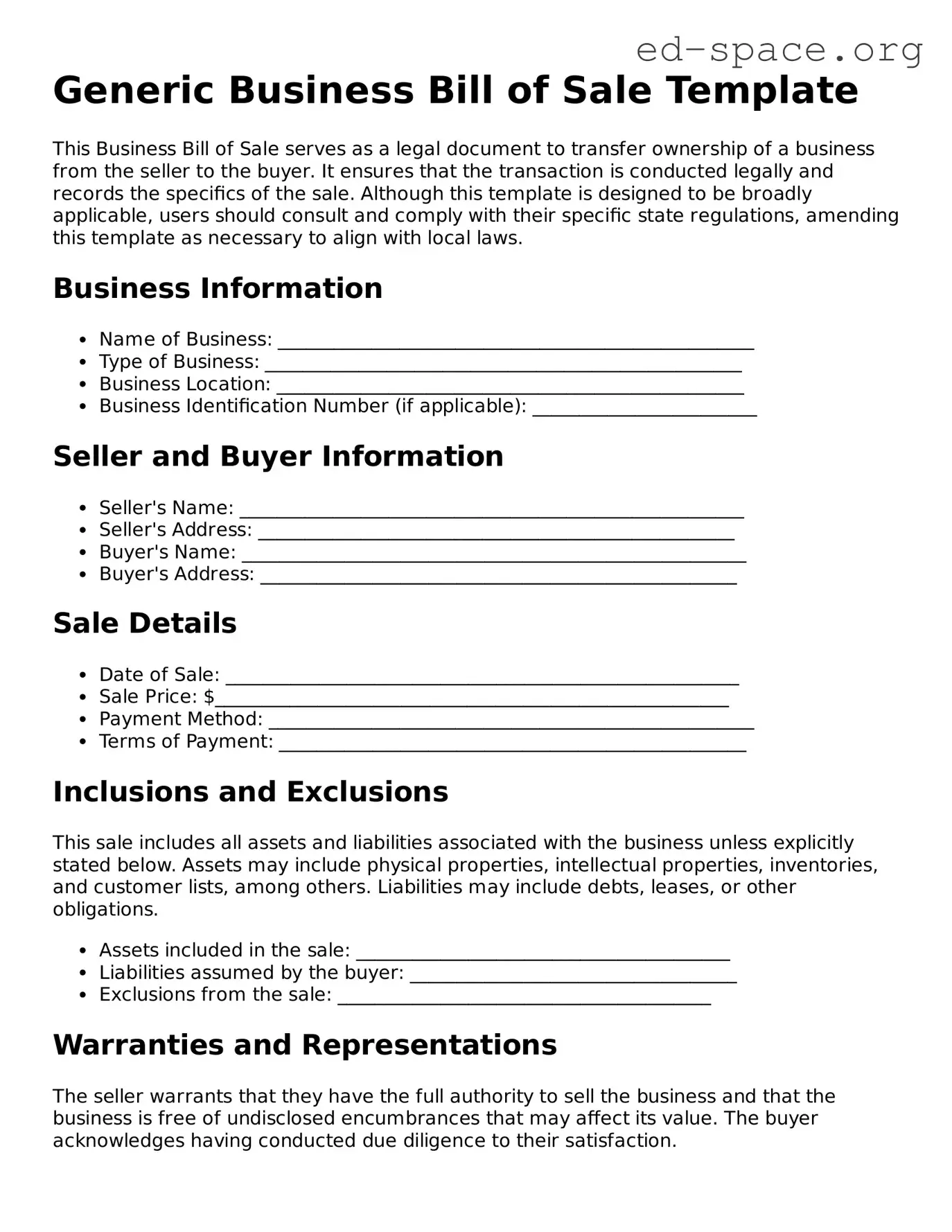What is a Business Bill of Sale?
A Business Bill of Sale is a legal document that records the sale of a business from one party (the seller) to another (the buyer). It serves as proof that ownership of the business has been transferred. It typically lists the business's assets being sold, including equipment, inventory, and even intellectual property. This document is crucial for both parties as it provides a record of the transaction details.
Why do I need a Business Bill of Sale?
Having a Business Bill of Sale is essential for several reasons. It formalizes the transaction between the buyer and the seller, serving as a receipt for the purchase. For the buyer, it's proof of ownership and can be used for tax purposes, obtaining financing, and in legal matters. For the seller, it confirms that the responsibility for the business has been transferred to the buyer, protecting them from future liabilities regarding the sold business.
What information should be included in a Business Bill of Sale?
A comprehensive Business Bill of Sale should include essential details such as the names and contact information of the buyer and seller, a description of the business being sold, the sale date, the purchase price, and a detailed list of the business assets included in the sale. It may also contain terms and conditions of the sale, any representations or warranties, and signatures of both parties along with the date of signing.
Is a Business Bill of Sale the same as a purchase agreement?
No, a Business Bill of Sale and a purchase agreement are not the same. While a Business Bill of Sale documents the transfer of ownership and serves as a receipt for the transaction, a purchase agreement is a more detailed contract. The agreement outlines the terms and conditions of the sale before it is finalized, such as the parties' responsibilities, payment plans, and any contingencies.
Do I need to have my Business Bill of Sale notarized?
Whether or not you need to have your Business Bill of Sale notarized depends on local laws and the complexity of the business sale. While not always required, getting the document notarized can add an extra layer of legal protection and authenticity to the transaction. It’s a good idea to check with a legal professional in your area to understand the specific requirements.
Can I create a Business Bill of Sale on my own?
Yes, you can create a Business Bill of Sale on your own. However, considering the legal and financial implications of selling a business, it's wise to consult with a legal professional or use a professionally drafted template. This ensures that all the necessary information is included and that the document complies with local laws. This approach protects all parties involved in the sale.
